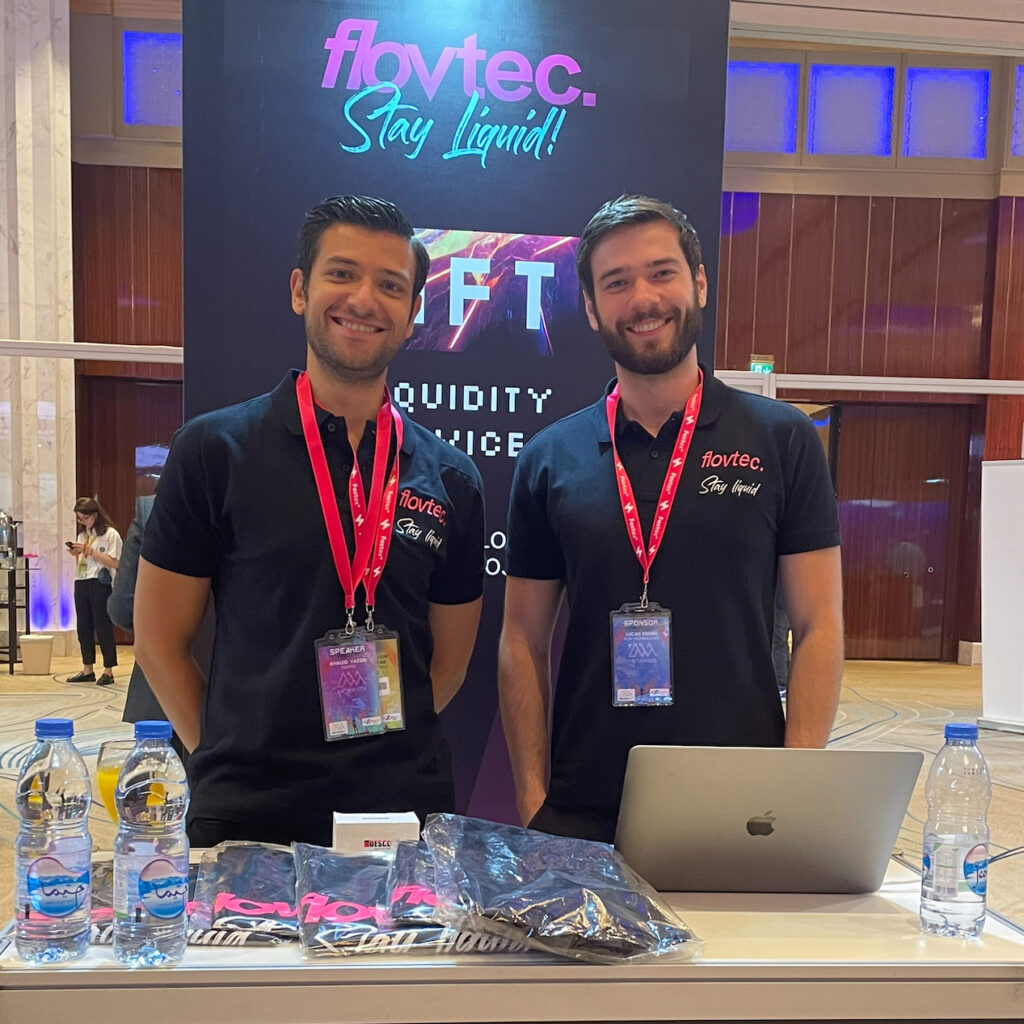Lucas Krenn (MMF 2021) is a Quantitative Trader at flovtec, a Swiss crypto company. His MMF cohort completed their degrees entirely remotely during the pandemic, including securing their internships and conducting their full-time job search once they completed the program. Lucas applied for multiple quant roles in financial services and interviewed as many as dozen times just for one position which he did not secure, though he did print and frame his rejection letter as motivation to move on. Crypto wasn’t on his radar. He needed to be convinced that the underlying technology was valid.
We asked Lucas what it took to land his quantitative trading job,
and his advice for grads who want to work in crypto.

Lucas first discovered flovtec via a LinkedIn job posting. After reviewing the qualifications, he realized he met some but not all of them, so he reached out to flovtec’s Chief of Trading (CoT) to learn how much wiggle room he might have. The CoT’s response was polite and encouraging, sharing his thoughts on what qualities an ideal candidate would possess. A few months later, the job appeared again in Lucas’s LinkedIn feed, so this time he contacted the CEO, who also encouraged him to apply.
Lucas promptly received the first interview task: implementing and backtesting a trading model from a whitepaper. Being a week-long project, it tested his motivation along with his creativity with respect to data collection, implementation, and reporting.
Lucas spent the next week working on the project full-time and he learned a lot about market-making in the process. Those efforts paid off and he moved on to a cultural fit interview consisting of behavioural questions from those who would become his teammates. Lucas made a good impression and moved on to an interview with the CEO.
He prepared for this interview by researching the CEO himself, going through interviews and podcasts that featured him, taking lots of notes and preparing lots of questions. He even tried some of the products created by the flovtec CEO’s previous startups, listing both things he liked and things he disliked. “A founder should be able to acknowledge all aspects of their product, not just the good things,” Lucas said. The interview went well and a few days later, flovtec welcomed him to the trading team. Following his three-month probation period, he became a full-time employee.
As a company, flovtec consists of many verticals. Their primary vertical is designated market-making, working on crypto projects where they provide quotes to buy or sell the tokens at any given moment. In times of high volatility, liquidity dries up, making it harder for retail investors to exit their positions cheaply. As a market-maker, flovtec alleviates that difficulty by offering competitive prices to both buy and sell the tokens. When you trade on a centralized exchange, such as Binance, you are likely trading with a market-maker. flovtec offers competitive prices to both buy and sell crypto.
Another vertical of flovtec is a public investment certificate called Met@one Nematic. This certificate behaves similarly to an investment fund, giving accredited investors the ability to invest in a proprietary long/short high-frequency trading strategy via their financial advisor.
Smaller and more experimental aspects of the business include proprietary trading, which means they trade their own capital for profit. flovtec also provides tailored solutions for clients across the digital asset space, including non-fungible tokens (NFTs).
Many skills developed by quants in their academic life and in finance jobs are transferrable to working in crypto. Things like machine learning, data science and quantitative research are valuable skills in any crypto organization. “Drive and motivation are critical, along with a strong quantitative foundation. The rest you are likely to learn on the job,” Lucas says.
Lucas finds the cryptocurrency space to be a meritocracy. He believes that there are many founders who care more about projects or courses you’re involved in than they do about your grades or academic pedigree. Candidates need to fully investigate the company, researching the team as well, so that when selected for interview, they are prepared. Hundreds of people apply for jobs in crypto every day. The ones who stand out are those who have done their homework and can credibly converse with their interviewers.
If you want to work in the industry, Lucas suggests that you think about what sort of role you’d be interested in and start learning. There are lots of resources and courses on trading, DeFi, smart contract programming and more, many of which are free.
He also recommends doing a deep dive into how blockchain works. Start with reading the Bitcoin whitepaper, then the Ethereum whitepaper, and branch off from there. If you want to learn trading, begin by opening an account on an exchange, move some of your funds to a self-custody wallet, and trade on both centralized and decentralized exchanges to grasp how those work. Lucas cautions against keeping too much money on centralized exchanges though, and to always practice good operations security with your self-custody wallets. Curious to learn what it takes to become a smart contract developer? Take a course on it: again, many are free.
“Jump in and get your hands dirty,” Lucas says, “you’ll get the hang of it faster than you think.”
See our earlier post where Lucas Krenn shared his typical day as a Quantitative Trader at flovtec, where he is solely responsible for North American trading hours.
